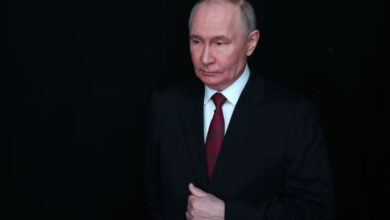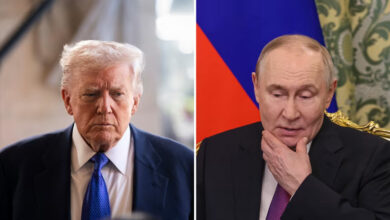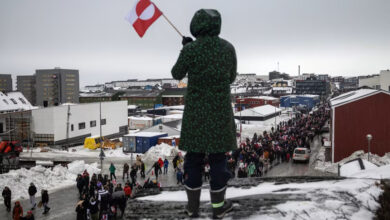
Russia has proposed to the U.S.-led coalition that they stage joint air strikes on Syrian rebels, including militant Islamist group Nusra Front, who are not observing a ceasefire, but the United States responded coolly on Friday.
Such action would begin as of May 25 and be coordinated with the Syrian government, Russian Defence Minister Sergei Shoigu told a Defence Ministry meeting broadcast on state television, adding Moscow reserved the right to stage strikes unilaterally.
He said joint air strikes should also target convoys carrying weapons and ammunition crossing into Syria from Turkey.
"We believe the adoption of these measures will allow a transition to a peaceful process to be achieved in the entire territory of Syria," he said. "Of course, these measures have been coordinated with the leadership of the Syrian Arab Republic."
Shoigu said discussions with U.S. military experts based in Jordan and other counterparts in Geneva had begun on Thursday.
But the United States made clear on Friday it had little interest in the idea, noting Russia has floated similar proposals in the past and stressing that it expected Moscow to pressure its Syrian government ally and to avoid unilateral strikes.
Washington has consistently refused to join forces with Russia in Syria ever since Moscow launched its campaign of air strikes in September last year, accusing it of acting solely to prop up Syrian President Bashar al-Assad.
The United States has called on Assad to step down.
Communication between the U.S. and Russian militaries on Syria has been limited to contacts aimed at avoiding an accidental clash as they carry out rival bombing campaigns and small numbers of U.S. forces operate on the ground.
Western officials suggested that the proposal, which the Pentagon said had not been formally presented to the U.S. Defense Department, was an attempt by President Vladimir Putin to raise Russia's profile on the international stage.
"There is no agreement to conduct joint air strikes with the Russians in Syria," said U.S. State Department spokesman John Kirby. He added that the United States believed that Assad's government was responsible for most of the violations of the fitful ceasefire that began on Feb. 27.
"We look to Russia to end such [government] violations, which includes strikes that have hit civilians and civilian facilities," he said.
While Russia supports the Assad government, the United States and its allies support rebels trying to overthrow him in a civil war that has burned for more than five years and killed at least 250,000 people.
However, both sides oppose the al-Qaeda-linked Nusra Front, which was not included in a ceasefire deal which has failed to prevent widespread violence. A U.S. military strike killed Nusra Front's leader, Abu Firas al-Suri, in April.
White House spokesman Eric Schultz said the U.S. aim remains for Russia to persuade Assad to abide by the cessation of hostilities in Syria, saying it was not the first time Russia had made such a proposal.
"You've seen Russia show an eagerness to cooperate with us militarily. This is not something that's new," Schultz said.
In private, U.S. officials said the idea was a non-starter.
"Don't see it happening," a U.S. official said, adding the U.S. military "will ensure safety of flight but nothing else."
A Western official from a coalition country also played down the proposal.
"Putin has long had a strategy regarding Syria of trying to share the geopolitical stage with the United States and its allies, and his latest proposal appears to reflect that goal," the official said.




